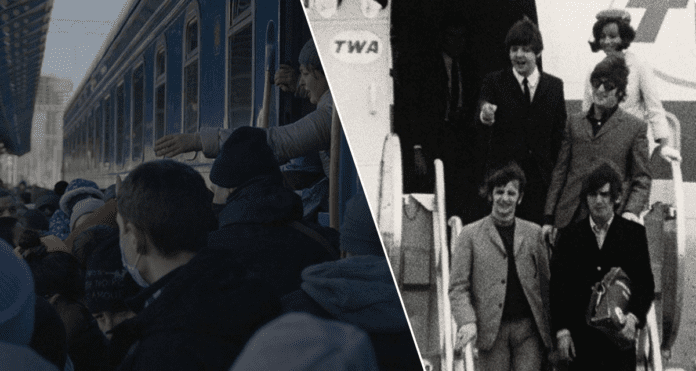ON THIS PAGE
- Songs of Slow Burning Earth
- Twst Things we said today
SONGS OF SLOW BURNING EARTH
Venice 81 – Out of competition – Non fiction
world premiere
Pisni zemli, shcho povilno horyt’, Ukraine/Denmark/Sweden/France, 2024. Directed by Olha Zhurba. Running time 1h 35′.
More than two years after the Russian invasion of Ukraine and more than ten after the violent protests in the same country that led to the escape of the elected president Viktor Janukovič that initiated the crisis, this severe and emblematic conflict continues to inspire cinema. Olha Zhurba’s Songs of Slow Burning Earth, presented out of competition in the section Non-fiction of Venice 81, offers a narrative from the Ukrainian point of view. In the same section, there’s also Anastasia Trofimova’s Russians at War, which tells the story according to Russian soldiers. And while the ‘useless slaughter‘ (to quote Benedict XV’s definition of the First World War) continues on the battlefield and fears of military escalation grow in the world, one of the few certainties, beyond the rhetoric propaganda of both sides, is the suffering of the populations involved. Zhurba, previously director of the award-winning Dad’s Sneakers (a short film from 2021 presented at Locarno) and Outside (2022), focuses on this topic. In Songs of Slow Burning Earth, the filmmaker anticipates the words of the Artistic Director of the Venice Film Festival, Alberto Barbera: ‘How war insinuates itself into everyday life‘. Between encounters, conversations, and sounds at different distances from the front line, it emerges that the tragedy of war has become a terrible normality. Songs of Slow Burning Earth can also be related to another film on the Lido this year, Honeymoon by Zhanna Ozirna (Biennale College section), about a young Ukrainian couple in a building occupied by the Russian army.
Emanuele Bucci
TWST /THINGS WE SAID TODAY
France/Romania. 2024. Directed by Andrei Ujică. Non Fiction. Running time 1h 31′. Production: Les Films du Camélia, Modern Electric Pictures, Tangaj Production.
Andrei Ujică (Timișoara, 1951) is one of the masters of European documentary filmmaking (together with Harun Farocki, in 1992, he made Videograms of a Revolution about the Romanian revolution of 1989 and the fall of dictator Nicolae Ceausescu, listed by Cahiers du Cinéma as one of the ten best subversive films of all time) and one of the greatest experimenters of documentary filmmaking with archive material. Ujică has been working for more than 12 years on this documentary about the Beatles’ first concert in the United States when, between 13 and 15 August 1965, the Liverpool quartet landed in America for the first time for their 15 August concert at New York’s Shea Stadium, the date with which they opened their US tour, which ended on 31 August in Daly City, California.
Andrei Ujică places the Beatles’ first concert in the United States at the centre of a reconstruction of the political and cultural climate of those years in a film consisting exclusively of archive material of the time (ABC, CBS, NBC), 8mm amateur footage and images of the concert, recorded with fourteen 35mm cameras (the concert was documented in 1966, in the TV film The Beatles at the Shea Stadium, produced by Ed Sullivan with his Sullivan Productions, Inc, by NEMS Enterprises Ltd. which holds the 1965 copyright, and by Subafilms Ltd). Four teenagers travel through time and relive the excitement of a concert by one of the most famous bands ever.
The acronym TWST in the title recalls Things We Said Today, the title of a Beatles song contained in the Lennon-McCartney album A Hard Day’s Night (1964) and written by Paul McCartney while on holiday in the US Virgin Islands with his girlfriend, actress Jane Asher. The lyrics are about the singer’s love for a girl despite their distance. McCartney later described the song as a demonstration of ‘nostalgia for the future’, being ‘nostalgic for the time we live in now’. A nostalgia that also conditioned the immense archival research work carried out by the director.
Oscar Cosulich

